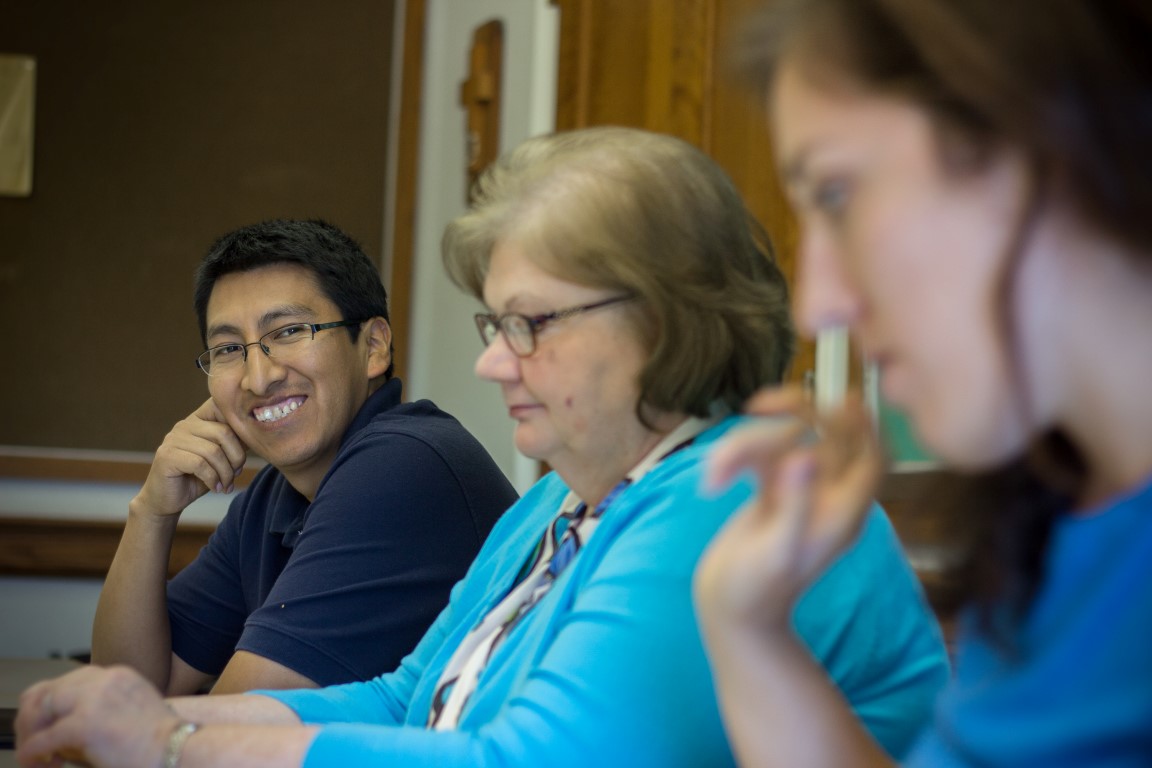Last year, when I was preparing the address I was to offer at my installation in a faculty chair, I read through a number of similar addresses given by theology professors throughout the centuries. One of the great things about century old institutions like the church or the academy is that we’re standing at the shoulders of generations and generations of predecessors. That can be stifling, but also quite inspiring. And so I wanted to know what previous scholars had said.
Reading these old addresses, I was not even so much struck by what these scholars had said but by what they took themselves to be involved in. In our time and age we tend to think about a seminary as a professional school, that is, a place that fosters professional competencies in our students. We want our students to be able to read and interpret Scripture, understand church history, analyze theological texts, and stay abreast of the latest psychological and sociological insights so that they are well prepared for the tasks that await them after seminary, whether ordained ministry, academic study, or other kinds of service.
But earlier generations would say that there is something deeply incoherent in such an understanding of theological education. In teaching our students to read and interpret Scripture, to understand church history, to analyze theological arguments, we teach them to think about God. We help them to understand God better. But if the aim of a theological school is to produce skilled professionals, then the thinking and speaking about God that we do in the context of our school becomes instrumental. Our gaining knowledge of God is not for the sake of God, but for the sake of our own professional development. In treating God instrumentally, our predecessors would hold, we are failing to do the very thing we set out to do: to speak about God truthfully. To treat God instrumentally is to deny the very being that God is: the one to whom all things are directed, not the one who can be directed at all things.
Therefore, these older scholars do not talk about theological education as a form of professional formation. They talk about it as spiritual and ecclesial formation. “What is the goal of the theological education?” asked Gisbertus Voetius, a 17th century Dutch theologian, in his installation lecture. “It is the contemplation of salvation, of the virtues… And of piety [the goal of which is] the common worship of God.” In other words, these scholars think about theological education not as a preparation for a professional career, but for a way of life.
It strikes me that these earlier generations of theological educators were right. They would be right theologically, if they were to charge the “seminary as professional school” paradigm with incoherence in using God instrumentally. But they would also be right in an oddly more pragmatic sense. We all know how theological education is in turmoil these days. Our enrollment numbers are falling; and the number of our students that expects to go into regular parish ministry is shrinking. The idea that they have clearly defined professional futures no longer matches reality. At the same time, I believe there are significant groups in our churches who never grace the seminary with their presence exactly because they are not interested in a professional ecclesial career, but who might be very interested in high level theological education if differently conceived. Think of retiring Baby Boomers who are looking for meaningful use of their time and talents, or young professionals who are looking for a better understanding of discipleship in a post-Christendom society.
What if we therefore think about a theological institution not so much as a professional school, but as a place where the church sets aside and fosters an academic community? An academic community invited to a common life? A common life shaped by theological reflection, which in turn draws us deeper in knowing, loving, and worshipping God? An academic community which is educational in that it invites students to join in, to walk with us, to participate in our common life, and as such to be formed in the habits of reflection, and knowing, and loving, and worship – be it for the time of a three-year M.Div. or other degree program, for continuing education or a doctorate in ministry, or maybe just for a class or two or three?
Conceiving of a seminary in this way would demand some real re-thinking of what we’re doing. It would maybe ask us to think, as our predecessors, of theological education not so much as preparation for a profession, but for a way of life. But sometimes, the future lies in the past.
The Rev. Dr. Edwin Chr. van Driel was installed into the Directors’ Bicentennial Associate Professor of Theology Chair in May 2014. Over the coming months, he’ll share additional insights from his installation address. You can also read more about his thoughts on the future of the Church and his other research interests on his faculty website. Professor van Driel teaches in the MDiv and DMin programs.

